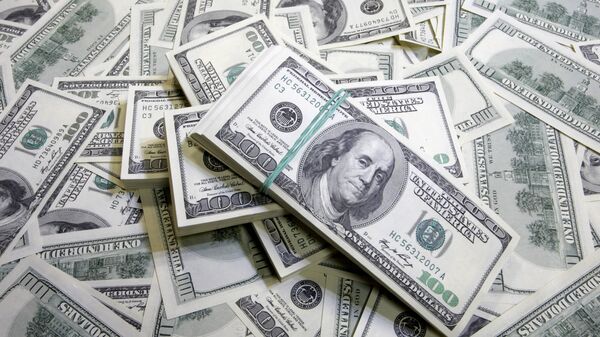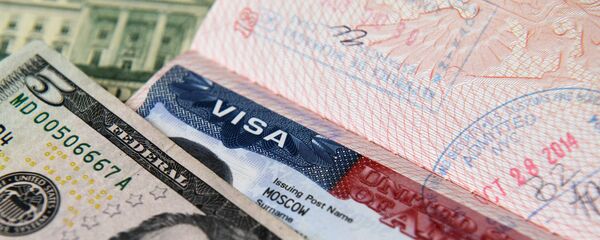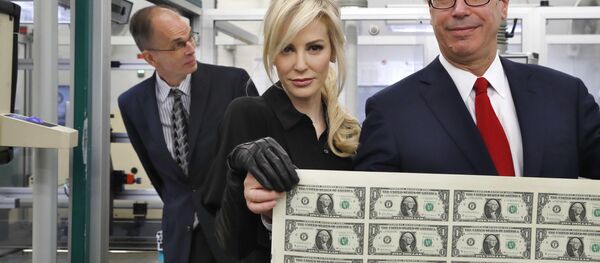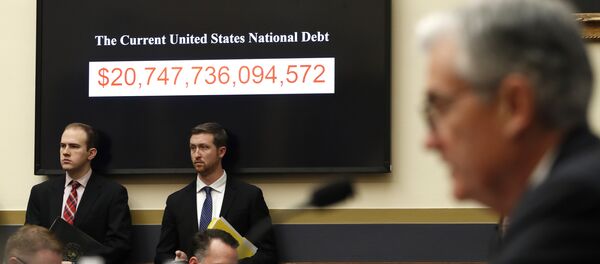US bank stocks are going down amid the Trump administration's trade war: On June 26, Bloomberg observed that they had suffered record losses.
"The S&P 500 Financials Index fell 0.4 percent to $443.50 as of 12:58 p.m. in New York Tuesday. Citigroup Inc. fell 0.3 percent, while Wells Fargo & Co. dropped 0.8 percent. JPMorgan Chase & Co slumped for the sixth straight day to extend its losses below its 200-day moving average," the media outlet signaled.
The first bomb under the banking sector was planted by former President Barack Obama: Following the 2008 global financial crisis the Federal Reserve kicked off its multi-phase program of quantitative easing through massive purchases of Treasury bonds and other securities.
An unexpected byproduct of the Obama-era quantitative easing program was the decrease in borrowing: Over the past two years the amount of lending to industry in the US has increased by only $100 billion. For comparison's sake, between 2012 and 2014 the volume of loans to the industrial sector grew by $220 billion. Predictably, the banks' income has decreased substantially.
The second blow to the banking sector was dealt by Donald Trump's tariff war, launched in March 2018. After the announcement of the imposition of 25-percent tariffs on steel and 10-percent tariffs on aluminum by the Trump administration, investors presumed that under the conditions of a trade war, companies are likely to refrain from new loans that hit US bank stocks further.
Washington's tariff spats with the EU and China in June have already prompted a wave of retaliatory measures from US trade partners, which threatens to negatively affect the global business climate.
However, the Fed chief regards it "as more of a risk," which has not hurt the US economy yet. According to Powell, US economic growth "is meaningfully above most estimates of its long-term trend — though admittedly, that trend is not as strong as we would like it to be."
Still, not everything is rosy in the garden, as the US national debt is continuing to grow, hitting the $21 trillion mark in March 2018.
"I think we're headed over the edge," US Congressmen Andy Biggs told Fox News in mid-June. "Think of it as a waterfall, we're in the boat, and now we're almost at the point where we can't get out of the flow. We're heading over unless we do something immediately."
Under these circumstances, Jeff Gundlach, the US legendary investor sometimes referred to as "the king of the bond market," criticized the Federal Reserve for increasing interest rates in mid-June.
"We are doing something that almost seems like a suicide mission: We're increasing the federal deficit while raising interest rates," he warned, as quoted by CNN.
The People's Bank of China's decision to weaken the yuan exchange rate by 0.44 percent to more than a five-month low, may exacerbate the situation, as a "cheap" yuan may potentially hit American producers at the same time providing their Chinese counterparts with a competitive advantage.
In the event of the Chinese dumping, American goods' prices will be much higher than those of the Chinese. Consequently, American companies will have less reason and desire to borrow for expansion of production, which again means the slump in income for American banks.
Meanwhile, more and more countries are signaling their willingness to perform payment transactions in their national currencies, turning their back on the US dollar.







